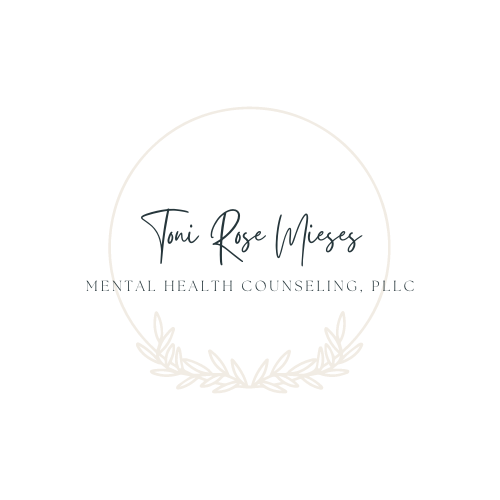
“Finding the balance between acknowledging the seriousness of the moment while also finding moments to enjoy life is crucial to finding the motivation to make behavioral changes.”
What was your path to becoming a Licensed Mental Health Counselor?
I knew from early on that I wanted to be a therapist after having the experience of working with a phenomenal guidance counselor who was a psychologist. I began my counseling journey as an undergrad by majoring in psychology and joining the crisis helpline on my campus. Being a hotline counselor affirmed my career aspirations, so I continued on to receive my master's in mental health counseling. Since then, I've had the honor of serving my local NYC community and learning various therapeutic interventions that I now regularly use with my clients.
What should someone know about working with you?
Our initial sessions consist of assessments and goal-setting. We will also investigate your past to gain a better understanding of your present and future. Using a combination of techniques, sessions can range from processing conversations to practicing new skills in real time. Assigning homework or tasks will be sprinkled in as it makes sense. I firmly believe in co-creating a singular experience that works for every individual.
What do you do to continue learning and building competencies as a provider?
I assert as a clinician that we are always learners and that it is our duty to increase our knowledge and proficiency. I make annual development plans that call for attending formal training on subjects in which I am uninformed or trying out fresh toolkit interventions. Additionally, I use my own therapy to make sure I live by what I preach and increase my awareness of myself as I develop personally.
How do your own core values shape your approach to care?
My core values are openness, curiosity, humility, and a bit of humor. In the therapy room, I remain open to every experience and use my curiosity to gain insight. As I work with people from all backgrounds, it is important for me to understand that there are many ways of being. People should be able to express themselves authentically. I also value the use of light humor and setting the conditions to be relaxed. Finding the balance between acknowledging the seriousness of the moment while also finding moments to enjoy life is crucial to finding the motivation to make behavioral changes.
What are you most excited about within the evolving mental health landscape?
The increase in mental health awareness and advocacy has opened a new chapter in this field. We are ensuring diverse voices are not only heard but that the therapy room is reflective of that diversity as well. As a Latina therapist who works with other therapists, I look forward to a new chapter of therapy that is rooted in interventions for people who have not always had the space for self-actualization. I aim to be that space for those who work with me.
-
Support for those who support others.
I aim to provide support for therapists with counseling, training, and resources for them to be able to thrive in all aspects of their lives.
-
My career journey has shaped my passion for supporting therapists and clinical leadership because, in my experience, as I moved post-licensure, those moments of peer support and consultation became more valuable. In addition, therapists, as helping professionals, have unique stressors that warrant specialized interventions. I wanted to be able to create a space outside of just my network bubble to ensure therapists are not only providing for clinically but are also seen holistically as well.
I began counseling in undergrad at UAlbany while being a Hotline Counselor and Trainer for students and local community members who needed crisis support. Also, as an undergrad, I was a Peer Career Advisor in our university’s advisement department. As I received my Masters,I intervened as a group and individual counselor and also worked as a Career Counselor.
When I returned to NYC, it is when I began my journey into evidence-based treatment in Child Welfare. I was a therapist doing Functional Family Therapy in the Bronx. I eventually became a Lead Therapist then Supervisor. I shifted into a consulting and advising role where I had the pleasure of guiding implementation team for EBPs in Child Welfare in NYC and across the globe. In addition, I was a model consultant for teams implementing FFT. Eventually, I transitioned into program leadership at a NYC-based non-profit where I served my community through mental health programing.
It is through all this experience where I come to learn the void in therapists specific supports. As a supervisor and mentor to therapists in many stages of their professional development journey, it became more evident that formalized supports are limited for us despite our continued commitment to serve others. I aim to be an agent of change in providing clinicans all they need to ensure they are supported as well.
-
Bachelors of Arts: University at Albany, SUNY (2014)
Majors: Psychology & Latin American & Caribean Studies
Masters of Science: University at Albany, SUNY (2015)
Program: Mental Health Counseling
Doctor of Philosophy: The Chicago School of Professional Psychology (In Process)
Program: International Psychology
Concentration: Organizations and Systems
Dissertation Focus: BIPOC Therapist in International Settings
Licensed Mental Health Counselor: New York State
License Number: 008396

